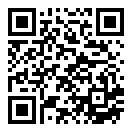Abstract:
Abstract
Social world is the arena for its members’ confrontation in different communicational and interactional cycles. As an action system, social communications is composed of several elements. The most important elements are as follows: agent (at least two people), situation (spatial-temporal), motivation, goal, will, action, norm, influence and feedback. The most prominent element whose positive presence is expected in all communication cycles is observing accepted axiological standards and ethical rules. To organize human actions in different fields of life, in each society, a wide range of dos and don’ts and ethical rules have been prepared and prescribed based on prevailing cultural discourse, structural requirements, situations and environmental conditions, motives and the goals of agents. In an Islamic society, religion, as a social meta-institution, plays a pivotal role in producing, confirming, prescribing, and encouraging the observance of moral values, both obligatory and preferred, as one of the basic components of religious "lifestyle". Using qualitative content analysis method, this article seeks to extract some of the moral teachings of Islam in the field of social relations from Sahifa Sajjadia and explain and interpret the issue to the possible extent.





